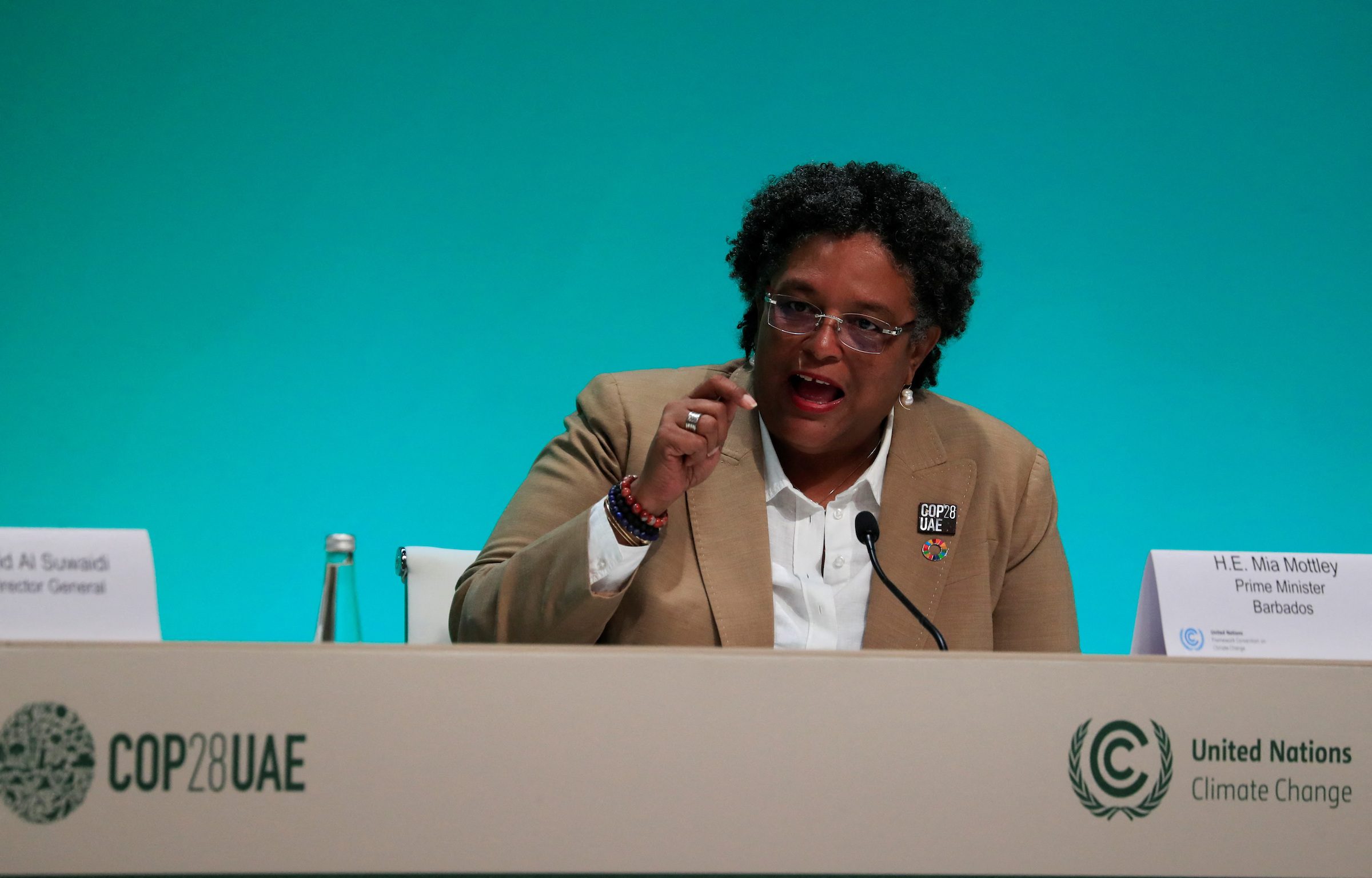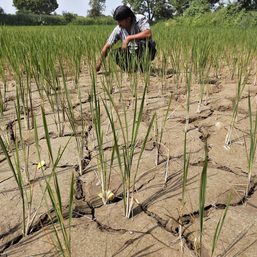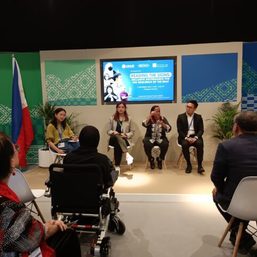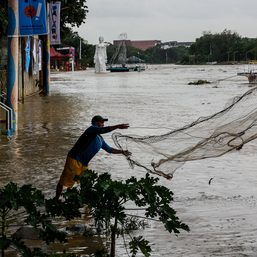SUMMARY
This is AI generated summarization, which may have errors. For context, always refer to the full article.

DUBAI, United Arab Emirates – When Stephanie Akrumah founded the Centre for Green Growth, a Ghanaian organization that trains women in her country on how to adapt to climate change, she used her own money, convinced she was doing the right thing.
Then she received a small amount of funding from international aid agency CARE to carry out training in communities.
Now the young activist is on the hunt for new sources of finance to expand the education she says is crucial for Ghanaian women to respond to impacts like flash floods on their farms.
But in several months of trying, it has proved “extremely difficult” to find, due to onerous processes and requirements for accessing international funding.
That is effectively freezing out local women’s groups working on climate change, she and others said.
On Monday, December 4, as the COP28 United Nations climate conference in Dubai focused on finance and gender equity, new figures from CARE showed that women’s rights organizations received less than 0.2% of Britain’s climate finance in 2022 – and less than 1% of that aid specifically targeted gender equality.
“There has to be another way,” said Akrumah, calling for easier, simpler access for women-led groups to obtain money from wealthy governments and global funds.
CARE pointed to unequal gender representation at the climate negotiations as another barrier for women seeking to gain more access to climate finance.
Women make up only 38% of registered COP28 delegates, according to UK-based climate website Carbon Brief.
That is an increase of just 1% compared to COP27 – although the share has risen steadily over the years.
Justice and efficiency
Nicholas Stern, a leading British economist who co-chairs an independent high-level expert group on climate finance, told Context that ensuring women get the funding they need, to respond to climate change and develop their societies at the same time, is a question both of justice and efficiency.
When it comes to efforts to boost agriculture, health, or education, “if you have more women involved, it all works better,” he noted, adding that the evidence of that has become stronger over the past two decades.
One effective way to get money to women is through direct cash transfers, he said, citing India’s digital identification program as a channel to target women with payments that can help build their resilience to threats including climate change.
“The most difficult thing and the most unjust thing for women would be not to do much,” he said, noting women suffer most both when weather disasters hit and also from longer-term shifts that force them to go further for daily chores such as collecting water.
At the COP28 summit, host nation the United Arab Emirates, backed by more than 60 countries, on Monday launched an initiative aimed at achieving “gender-responsive just transitions” and giving women more economic power so they do not lose out as societies shift to a lower-carbon model.
The UAE said the new COP28 partnership will produce better-quality data to support decision-making, target finance flows to the regions most impacted by climate change, and strengthen education and skills, with a focus on women who are already suffering disproportionately as the planet warms.
Fijian Gender Minister Lynda Tabuya told an event on the sidelines of COP28 that in her Pacific island nation, more powerful cyclones, intense heat waves, and rising seas are affecting women by fueling poverty, migration, health risks, and their care burden.
“These issues deeply affect the safety and the well-being of our children, and women and girls,” she said.
Climate finance needs to be accessible and beneficial for women, she added, calling for more data on the challenges they face and recognition of their unpaid care work, as well as climate finance that supports green skills training and women-led businesses.
No gender-specific targets
A lack of comprehensive data on how climate change is affecting women specifically and on the funding available to them has hampered efforts aimed at helping them adapt by planting resilient crops or using solar energy instead of dirty diesel generators.
A new paper from the UK-based Overseas Development Institute (ODI), a think tank, noted there are no gender equality-specific targets for climate finance, but governments at UN climate talks had committed to increase “gender-responsiveness.”
The researchers found that in 2021, out of a total of $28 billion in adaptation funding from developed countries, $12.2 billion had gender equality as an objective, according to donors.
But 40% was not screened for gender equality when reported, leaving “great uncertainty” over how much adaptation finance has that goal, ODI said.
Barbados Prime Minister Mia Mottley said that to help women, it is first important to get more climate finance flowing for vulnerable island states and developing countries at the global level by addressing the barriers preventing them from accessing money from development banks and the private sector.
“The reality is that most of the things we are trying to do are taking too long to benefit the people it’s intended to benefit,” she told journalists.
For example, women are staying behind to look after families and homes as climate change pushes men to seek work elsewhere, she said, arguing that the best way to help them is to ease debt burdens in their countries, freeing up national funds that could then help people “on the front line,” she said.
Getting women on board with the transformations needed for less-polluting lifestyles also is essential, she added.
“If we’re going to change how we live and how we move and how we farm, we’re going to have to do it at the level of families – which means that women’s acceptance of the necessity for change is pivotal in order to be able to get that success,” she said. – Rappler.com
Add a comment
How does this make you feel?
![[OPINION] In a changing climate, how do we ensure safety and health at work?](https://www.rappler.com/tachyon/2024/04/Climate-change-safety-workers-April-25-2024.jpg?resize=257%2C257&crop_strategy=attention)




There are no comments yet. Add your comment to start the conversation.